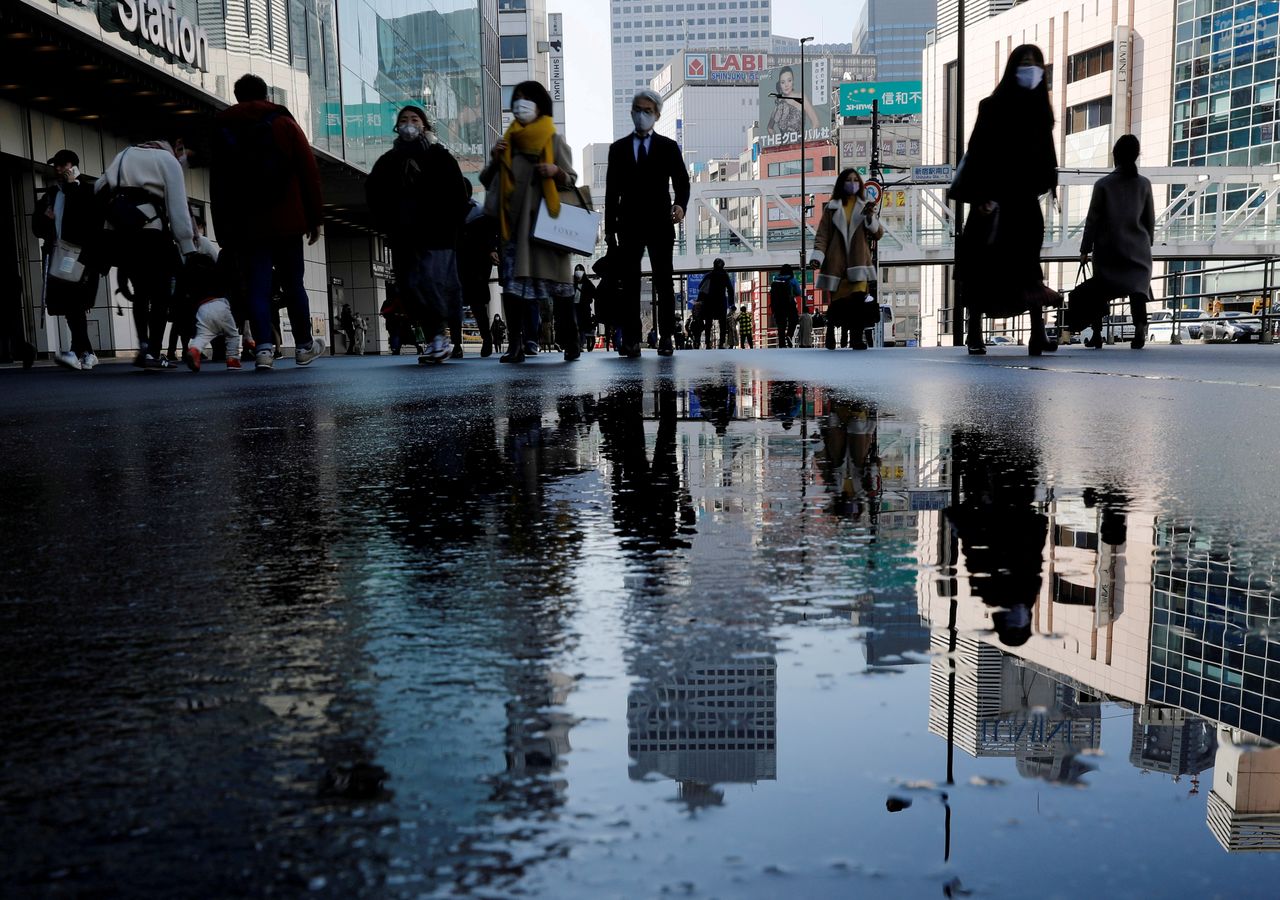Japan households amass record financial assets as COVID-19 crimps spending
Newsfrom Japan
Economy- English
- 日本語
- 简体字
- 繁體字
- Français
- Español
- العربية
- Русский

FILE PHOTO: Pedestrians wearing protective masks amid the coronavirus disease (COVID-19) outbreak, make their way in Tokyo, Japan, February 2, 2021. REUTERS/Kim Kyung-Hoon/File Photo
TOKYO (Reuters) - Japanese households’ financial assets hit a fresh record near 2 quadrillion yen last year, half of which was in cash and bank deposits, in a sign the coronavirus pandemic encouraged them to save rather than spend.
The data underscores the challenge policymakers face in firing up consumption and averting a return to deflation, as the lingering pain from the COVID-19 crisis keep companies from raising wages and prices.
The balance of financial assets held by households rose 2.9% from a year earlier to a record 1,948 trillion yen ($17.85 trillion) as of the end of December, Bank of Japan data showed on Wednesday.
Of the total, 1,056 trillion yen was in cash and deposits, as curbs to prevent the spread of the virus kept consumers at home and away from shops and outdoor activities, the data showed.
Financial assets held by the corporate sector were up 6.2% at a record 1,275 trillion yen, of which nearly a quarter was in cash and deposits, according to the quarterly fund-flow data.
The BOJ’s government bond holdings also reached a record high at 545 trillion yen as of December, making up 44.7% of the total market, the data showed.
($1 = 109.1500 yen)
(Reporting by Leika Kihara and Takahiko Wada; Editing by Sam Holmes)